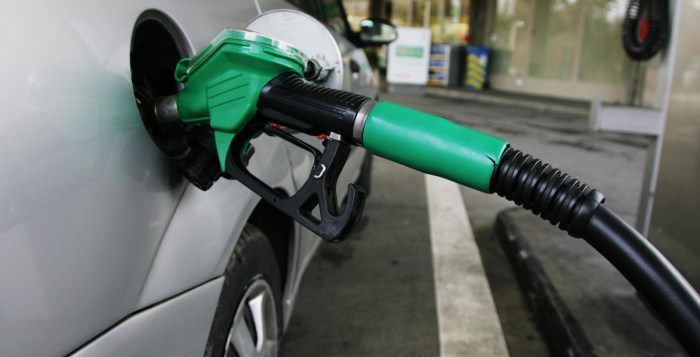Over one week after President Muhammadu Buhari inaugurated the National Gas Expansion Programme which promotes the transition from petrol to gas for automobiles, the implementation of the initiative is yet to begin, THE WHISTLER findings have revealed.
The Federal Government, through the Nigerian National Petroleum Corporation during the roll-out of the program in Abuja, had assured of free conversion services in some selected retail stations to help interested motorists switch to motor gas.
Advertisement
However, the expectation of Nigerians are being dashed as they flood the NNPC filling stations but couldn’t get the service.
Some motorists in Abuja who went to the NNPC station in Lugbe were turned back as the government is yet to commence the implementation of the program.
During visits to NNPC retail stations in Lugbe and Katampe areas of Abuja, THE WHISTLER Correspondent observed that the level of preparation for the program was low as only few equipment were sighted at the Lugbe station but none at the Katampe station.
An official of the NNPC retail station in Lugbe confirmed that they already had the equipment but no information on when to begin the installation
Advertisement
She said, “We expected that the implementation would have begun on Monday but we didn’t get such a directive or any move to begin.
“Yes, we have had motorists come here for the conversion of their vehicles, but unfortunately we have not started. and I doubt if it will commence this year.
“According to what we have heard, there might be free conversion for motorists during the first three weeks after which, others will have to pay a sum which might be up to N100,000 to N200,000.”
Sources at the Katampe station of the NNPC confirmed that not much has been done in terms of preparation for the program, stating that there is low possibility of the program commencing this year.
He said, “We had the roll-out ceremony here but since that time till now not so much has been done. We are still expecting the equipment to be brought and installed, but I’m not sure if we will commence the conversion this year. We cannot start the process on our own, we usually wait for a directive.”
Advertisement
Speaking on the possible cost that customers are expected to pay, he said the amount would be around N100,000 to N200,000, adding that it may not be free as many expected.
…
Haruna Sani, Abuja based taxi driver in a chat with THE WHISTLER said, “I would really prefer using gas on my car than fuel because gas is cheaper and cleaner. But with this our government, I just hope it is not another way for us to spend our hard earned money.”
The Group Managing Director of the NNPC, Mele Kyari, had earlier noted that the corporation would expand the initiative to all NNPC stations across the nation to ensure steady availability of auto gas at competitive prices.
He said, “In support of this effort, the NNPC will provide free conversion services in some selected retail stations to help interested motorists switch to motor gas, especially in areas with existing motor gas service stations in the FCT, Kaduna, Kwara, Kogi, Oyo, Lagos, Delta, Edo, Rivers and Bayelsa states.
“We will be launching five gas powered transit buses and 10 converted buses for some of our agencies and with the continued agreement that we will extend it to one million cars by the end of 2021.”
The GMD explained the transition drive follows the need to provide an alternative product for petrol as the Nigerian Government moves away from paying so much money on fuel subsidy.
Advertisement
He said, “From 2016 to 2019, the nation spent over N3tn to subsidize the pump price of petroleum products, particularly the PMS, while market forces continued to keep the cost of supply high.
“The subsidy regime did not benefit Nigerians, coupled with the collapse of the global economy due to the impact of COVID-19. The country lacks the resources required to sustain the subsidy regime.
“The situation, according to him, has deprived the nation of its anticipated prosperity as the resources which should have been deployed towards infrastructure, economy development, and job generation were depleted by the subsidy regime.
“In March 2020, we brought into effect the deregulation of the downstream sector of the oil and gas industry, which brought an end to fuel subsidy in the country.”



